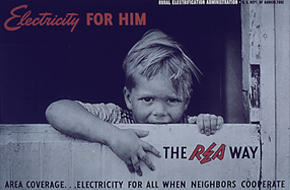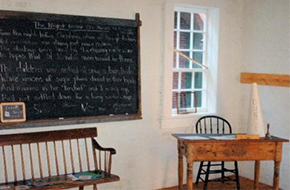Stephen Taylor

Steve Taylor is a lifelong scholar of New Hampshire agriculture and rural life. He has been a daily newspaper reporter and editor, freelance writer, dairy farmer and for 25 years served as the state's commissioner of agriculture. He was the founding executive director of the Hampshire Humanities Council and in recent years has been an active participant in its Humanities to Go program.
Contact
Stephen Taylor's Programs

Late in Arriving, How Electricity Changed Rural New Hampshire Life
Imagine a New Hampshire town where some people enjoyed the benefits of electricity – lighting at the flick of a switch and reliable heating controlled by a thermostat – while others lived with smelly kerosene lamps and smoky box stoves. In New Hampshire, during the first half of the 20th century, residents of developed communities enjoyed the transformative benefits of electric power while those in the sparsely populated regions lived and worked in conditions little changed from the 19th century.
It took the coming of the New Deal's Rural Electrification Administration and a determined band of farmers to overcome opposition from the established private utilities to create the New Hampshire Electric Cooperative in 1939. Despite labor and material shortages during World War II, within a decade, power came to almost all of the previously unserved areas of the state. For thousands of households, this meant relief from the drudgery of the wood-fueled cookstove, the washboard and the kerosene lamp. Reliable electric power similarly brought new ways of life to farmers and artisans. This program will explore how these developments changed civic and social life in New Hampshire’s countryside, and touch the ways the disparity of broadband access in the state today echoes these earlier struggles.

New Hampshire's One-Room Rural Schools: The Romance and the Reality
Hundreds of one-room schools dotted the landscape of New Hampshire a century ago and were the backbone of primary education for generations of children. Revered in literature and lore, they actually were beset with problems, some of which are little changed today. The greatest issue was financing the local school and the vast differences between taxing districts in ability to support education. Other concerns included teacher preparation and quality, curriculum, discipline, student achievement and community involvement in the educational process. Steve Taylor explores the lasting legacies of the one-room school and how they echo today.

Upper Valley? How a Newspaper War Created a Virtual State in Western NH & Eastern VT
Learn how the term "Upper Valley" came to be and how the term became a name for a cluster of towns that are connected in many ways, even though divided by a river and a state line. Deepen your understanding of this history and its relevance to contemporary social and cultural life in the region.

Join us as we celebrate 50 years of bringing the humanities to your community!